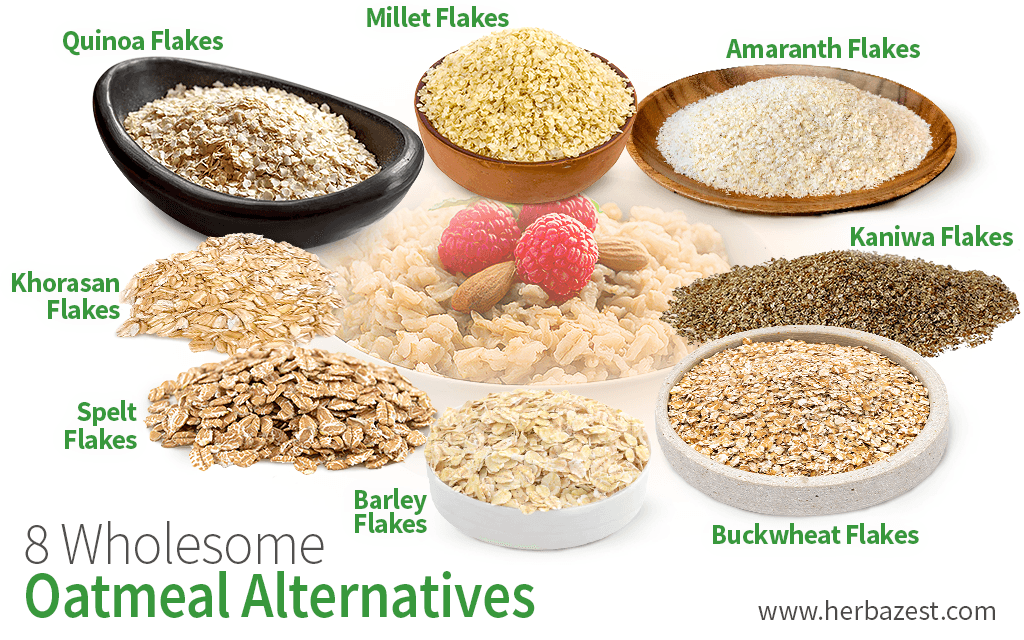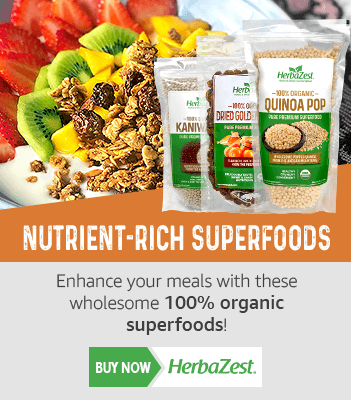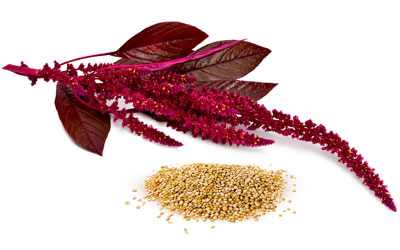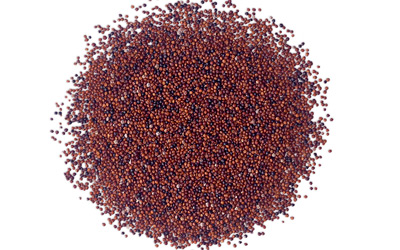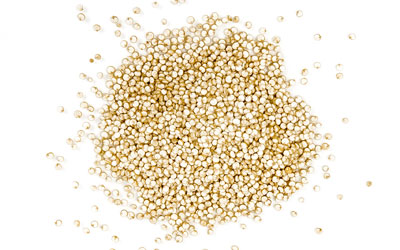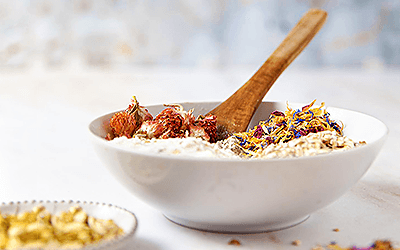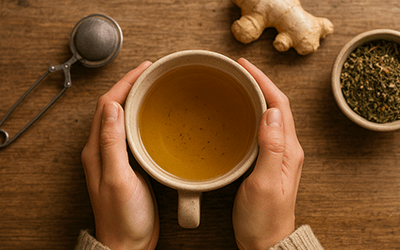Without a doubt, oats are one of the most versatile grains out there. Whether you enjoy them cooked, baked, or chilled overnight, they have a lovely texture and a neutral flavor that go well with virtually everything. But if you're looking to keep your meals a bit more varied or need to avoid oats for health reasons, you're in for a treat. Discover our top 8 nutritious alternatives to oats that will revolutionize your breakfast!
1. Quinoa Flakes
Quinoa flakes are a great way to change things up a bit in your breakfast routine. Since they're practically rolled quinoa seeds, they preserve the nutritional components of the seeds, offering essential amino acids, fiber, and micronutrients. They're also very soft and can be prepared almost instantly. You'll love how versatile they are in these baked quinoa flakes with blueberries, banana bread granola with quinoa flakes, quinoa flake apple porridge, or banana bread overnight quinoa flakes.
2. Millet Flakes
Considered one of the most recent superfoods, millet is a wonderful grain to eat as flakes. The flakes have a slightly sweet flavor and a lovely chewy texture that will delight your tastebuds. Even more importantly, they will boost your nutrition with plant-based protein, fiber, and minerals, like calcium and copper. They're popularly made into a soft and creamy porridge and paired with berry compote.
3. Amaranth Flakes
Flaked amaranth is another wholesome alternative to oats. The flakes are quite similar nutritionally to quinoa flakes, but do have a slightly more tender texture. Thanks to that, they cook very quickly, helping you get out the door satisfied and well-nourished in no time. Try them in amaranth flake pumpkin porridge, goldenberry amaranth flake granola, strawberry amaranth flake bake, or apple cinnamon overnight amaranth flakes.
4. Buckwheat Flakes
To substitute oats with flakes that have even more fiber and protein, consider buckwheat, a pseudocereal with Eastern European origins. You can use buckwheat flakes to make anything from crunchy muesli and dense pancakes to smoothie bowls. They have a unique, nutty flavor; cook quickly; and pair well with various flavorings, like apples and cinnamon or fresh berries.
5. Barley Flakes
For thicker and chewier alternative to oatmeal, barley flakes are the way to go. Just like oats, barley is naturally rich in beta glucan, a type of soluble fiber with beneficial effects on blood sugar and cholesterol levels as well as immunity.1 While they're not as fast-cooking as quinoa or amaranth flakes, barley flakes can nevertheless be a great base of morning porridge, granola, pancakes, and more.
6. Kaniwa Flakes
Although it's as nutritious as quinoa and amaranth, kaniwa is still relatively unknown in the Western world. But rolled kaniwa flakes make for a wholesome oat substitute. These tiny, brown flaked seeds are a truly nutritious way to start your day, especially as key lime pie overnight kaniwa flakes, hot kaniwa flake cereal, and healthy kaniwa flake granola.
7. Spelt Flakes
Spelt flakes are an attractive option for those looking for an oat replacement for their breakfast meals. As one of the most nutritious grains out there, spelt is high in fiber and a handful of important nutrients. The flakes are soft, have a nutty flavor, and cook in minutes, similar to oats. Use them in porridge, granola, muesli, breakfast muffins, and more!
8. Khorasan Flakes
If you like firmer texture in your hot cereal, you'll love Khorasan flakes. They are similar to rolled oats, but rather than being neutral in flavor, they are pleasantly nutty. Khorasan wheat, commercially known as kamut, is one of the ancient grains with a wide range of key nutrients, especially protein and dietary fiber. Just like with all other aforementioned oat alternatives, enjoy Khorasan flakes in sandwich bread, muesli, porridge, and granola bars.
As you can see, there is a variety of delicious and wholesome oatmeal alternatives out there. Many of them are naturally free of gluten if your diet so requires. Since processing methods can vary greatly, make sure you choose the least processed products that were made with no artificial flavorings, added sugars, and other unnecessary additives.
Sources
- Food Science & Nutrition, Nutritional and bioactive characteristics of buckwheat, and its potential for developing gluten-free products: An updated overview, 2022
- Harvard T.H. Chan - School of Public Health, Oats | Quinoa
- Journal of Agricultural Engineering and Food Technology, Nutritional Importance and Processing Aspects of Pseudo-Cereals, 2019
- Oldways Whole Grains Council, Khorasan Wheat: The Story of an Ancient Grain, 2017
- Stroke, Substitutions of Oatmeal and Breakfast Food Alternatives and the Rate of Stroke, 2019
- Washington State University, Spelt for Human Health and Nutrition, n.d.
Footnotes:
- Central European Congress on Food. (2022). Nutritional Advantages of Barley in Human Diet. Retrieved April13, 2023, from https://link.springer.com/chapter/10.1007/978-3-031-04797-8_33

